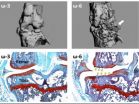(Press-News.org) Rio de Janeiro, Brazil- In the brains of all vertebrates, information is transmitted through synapses, a mechanism that allows an electric or chemical signal to be passed from one brain cell to another. Chemical synapses, which are the most abundant type of synapse, can be either excitatory or inhibitory. Synapse formation is crucial for learning, memory, perception and cognition, and the balance between excitatory and inhibitory synapses critical for brain function. For instance, every time we learn something, the new information is transformed into memory through synaptic plasticity, a process in which synapses are strengthened and become more responsive to different stimuli or environmental cues. Synapses may change their shape or function in a matter of seconds or over an entire lifetime. In humans, a number of disorders are associated with dysfunctional synapses, including autism, epilepsy, substance abuse and depression.
Astrocytes, named for their star-like shape, are ubiquitous brain cells known for regulating excitatory synapse formation through cells. Recent studies have shown that astrocytes also play a role in forming inhibitory synapses, but the key players and underlying mechanisms have remained unknown until now.
A new study just published in the journal Glia and available online on July 11th, details the newly discovered mechanism by which astrocytes are involved in inhibitory synapse formation and presents strong evidence that Transforming Growth Factor Beta 1 (TGF β1), a protein produced by many cell types (including astrocytes) is a key player in this process. The team led by Flávia Gomes of the Rio de Janeiro Institute of Biomedical Sciences at the Federal University of Rio de Janeiro investigated the process in both mouse and human tissues, first in test tubes, then in living brain cells.
Previous evidence has shown that TGF β1, a molecule associated with essential functions in nervous system development and repair, modulates other components responsible for normal brain function. In this study, the authors were able to show that TGF β1 triggers N-methyl-D-aspartate receptor (NMDA), a molecule controlling memory formation and maintenance through synaptic plasticity. In the study, the group also shows that TGF β1-induction of inhibitory synapses depends on activation of another molecule - Ca2+/calmodulin-dependent protein kinase II (CaMK2)-, which works as a mediator for learning and memory. "Our study is the first to associate this complex pathway of molecules, of which TGF β1 seems to be a key player, to astrocytes' ability to modulate inhibitory synapses", says Flávia Gomes.
The idea that the balance between excitatory and inhibitory inputs depends on astrocyte signals gains strong support with this new study and suggests a pivotal role for astrocytes in the development of neurological disorders involving impaired inhibitory synapse transmission. Knowing the players and mechanisms underlying inhibitory synapses may improve our understanding of synaptic plasticity and cognitive processes and may help develop new drugs for treating these diseases.
INFORMATION:
The paper entitled "Astrocyte Transforming Growth Factor Beta 1 Promotes Inhibitory Synapse Formation Via Cam Kinase II Signaling" can be found online at http://onlinelibrary.wiley.com/journal/10.1002/(ISSN)1098-1136
The research was supported by grants from the Conselho Nacional de Desenvolvimento Científico e Tecnológico (CNPq), the Institute of Glia (iGLIA/CNPq), the Coordenação de Aperfeiçoamento de Pessoal de Nível Superior (CAPES), and the Fundação Carlos Chagas Filho de Amparo à Pesquisa do Estado do Rio de Janeiro (FAPERJ).
Blame it on the astrocytes
2014-07-11
ELSE PRESS RELEASES FROM THIS DATE:
Omega 3 fatty acids lessen severity of osteoarthritis in mice
2014-07-11
Mice consuming a supplement of omega 3 fatty acids had healthier joints than those fed diets high in saturated fats and omega 6 fatty acids, according to Duke Medicine researchers.
The findings, published in the Annals of the Rheumatic Diseases (10.1136/annrheumdis-2014-205601) on July 11, 2014, suggest that unhealthy dietary fats – not just obesity – may contribute to worsening osteoarthritis.
"Our results suggest that dietary factors play a more significant role than mechanical factors in the link between obesity and osteoarthritis," said Farshid Guilak, Ph.D., Laszlo ...
'Tailored' water -- the latest in lawn care
2014-07-11
In Santa Fe, Albuquerque, and other major cities in New Mexico, nearly every public golf course is now watered with treated municipal wastewater rather than precious potable water supplies. Across the U.S. Southwest as a whole, more than 40% of all golf courses receive treated effluent. Reusing the effluent increases the sustainability of golf courses.
Additionally, golf courses and homeowners alike fertilize their lawns during the growing season. The major nutrient in fertilizer is nitrate. A New Mexico State University turfgrass expert has a new vision for even more ...
Non-invasive test could be used to predict premature birth and delivery of small babies
2014-07-11
Testing for the presence of specific molecules present in the urine of pregnant women can give an indication in early pregnancy of whether a baby will be born premature or the fetus will suffer poor growth, according to research published in the open access journal BMC Medicine. Identifying these conditions early in pregnancy could potentially help reduce complications and manage any difficulties, although more work is needed before the findings can be translated to clinical settings.
Researchers from Imperial College London and the University of Crete analyzed the metabolites ...
Women under-represented in academic medicine
2014-07-11
Women are under-represented in academic medicine resulting in a waste of public investment due to loss of research talent. Writing in the July issue of the Journal of the Royal Society of Medicine, authors of an essay on women and academic medicine say that as a consequence of female under-representation, some areas of medicine are under-researched at a cost to patients and society. Discriminatory practices and unconscious bias, they say, continue to occur in academic medicine, despite a substantial fall in traditional discrepancies between men and women in medicine in ...
Heart health benefits of light drinking brought into question
2014-07-11
A reduction in alcohol consumption, even for light-to-moderate drinkers, could be linked to improved cardiovascular health, including a reduced risk of coronary heart disease, lower body mass index and blood pressure, according to new research published in The BMJ.
These latest findings challenge the results of previous observational studies which found that the consumption of light-to-moderate amounts of alcohol (12-25 units per week) may have a protective effect on cardiovascular health.
The research, led by the London School of Hygiene & Tropical Medicine with University ...
Injected vaccine could help eradicate polio
2014-07-11
Re-introducing a type of polio vaccine that fell out of favour in the 1960s could hasten eradication of the disease, according to new research.
The study, by Imperial College London and the Christian Medical College in Vellore, India, suggests that the injected polio vaccine (IPV), which is rarely used today in countries affected by polio, could provide better and longer lasting protection against infection if used in combination with the more commonly used live oral polio vaccine (OPV).
The findings are published today in The Lancet.
Vaccination protects an individual ...
The Lancet: World's most advanced dengue vaccine candidate shows promise in phase 3 trial
2014-07-11
The first dengue vaccine candidate (CYD-TDV) to reach phase 3 clinical testing has shown moderate protection (56%) against the disease in Asian children, according to new research published in The Lancet.
Dengue is a mosquito-borne disease that infects around 390 million people each year, of whom about 96 million suffer from symptomatic infection. WHO estimates that the global burden of dengue has risen 30-fold over the past 50 years, with over half of the world's population at risk of the disease.
There is no licensed vaccine available to treat or prevent dengue ...
The Lancet: Extra dose of inactivated polio vaccine boosts immunity in children and could speed up global eradication efforts
2014-07-11
Giving children under 5 years old an extra dose of inactivated polio vaccine (IPV) helps to boost their immunity to the poliovirus and should be added to vaccination programmes in polio-endemic countries and those facing a high risk of imported cases, suggests new research published in The Lancet.
Lead author Dr Jacob John from Christian Medical College, India explains, "Adding a supplementary IPV dose to children already vaccinated with oral poliovirus vaccine (OPV) may hasten polio eradication by boosting herd immunity in endemic regions, act as a booster to prevent ...
The Lancet: Novel treatment for drug-resistant tuberculosis shows promise, but concerns for patient safety remain
2014-07-11
In a viewpoint published this week in The Lancet, the Community Research Advisors Group (CRAG) argue that research into bedaquiline – a new drug, fast tracked for multidrug-resistant tuberculosis (MDR-TB) – should proceed cautiously in people with drug-sensitive tuberculosis. CRAG, an international, community-based advisory board for the US Centers for Disease Control and Prevention's Tuberculosis Trials Consortium, writing in The Lancet independently, urge researchers to balance the goal of shortening treatment for drug-sensitive TB with patient safety.
Bedaquiline ...
Cost of expensive medication in dialysis catheters may be offset by reduced complications
2014-07-11
Washington, DC (July 10, 2014) — Using an expensive agent to prevent blood clots in kidney failure patients' dialysis catheters may turn out to be less costly overall due to its ability to reduce medical complications, according to a study appearing in an upcoming issue of the Journal of the American Society of Nephrology (JASN).
Recombinant tissue plasminogen activator (rt-PA) is a medication used to break up blood clots that occur in the vessels of patients having a heart attack. A recent clinical trial revealed that using rt-PA once per week plus the anticlotting agent ...

